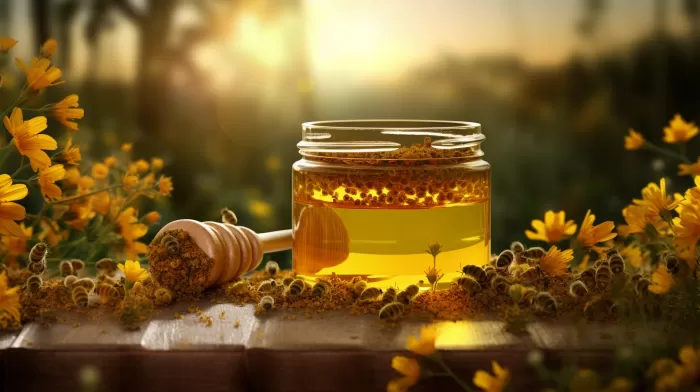Can bees treat an enlarged prostate? If you’re wondering how bee pollen extracts can help you manage an enlarged prostate or benign prostatic hyperplasia (BPH), you’re in the right place! Let’s dive into how bees collect pollen and how it can affect prostate health.
Bees and Pollen Collection
Bees collect pollen from flowers and mix it with nectar and their saliva. Pollen extracts contain pollen from specific plants to ensure a consistent amount of active ingredients in each batch. Most studies on pollen and its effects on prostate health focus on Graminex pollen extract, also known as cernilton. Graminex contains pollen from rye, corn, and timothy.
How Does Bee Pollen Help Enlarged Prostate?
Pollen extract can be about 70 percent effective in promoting health in an enlarged prostate and easing:
- Nocturia (the need to urinate at night)
- Frequent urination
- Poor urinary flow rates
- Poor urinary volume
- Residual urine volume (the amount of urine left in the bladder after urinating)
Besides helping with prostate health symptoms, Graminex pollen is also used to promote better health for men with prostatitis. It has been shown to inhibit prostate cell growth and have an anti-inflammatory effect. All these aspects make bee pollen an essential supplement for overall prostate health.
However, bee pollen is not suitable for people who are allergic to pollen. If you are allergic to grass, flowers, or other plants, talk to your doctor before taking bee pollen.
Pollen Studies
Several studies have examined pollen’s effectiveness in relieving BPH symptoms. An analysis of four studies involving 444 men with enlarged prostates found that bee pollen significantly improved nocturia compared to a placebo.
In another study published in the British Journal of Urology, men with outflow obstruction from an enlarged prostate took either bee pollen or a placebo daily for six months. At the end of the double-blind study, 69 percent of the men who took bee pollen reported improved symptoms, compared to 30 percent who took the placebo. The improvements included a decrease in residual urine and a measured decrease in the prostate’s diameter.
A Japanese study evaluated 79 patients who took bee pollen for over 12 weeks. By the study’s end, the men had increased flow rates, while residual volume had significantly decreased. Other improvements reported were urgency, dysuria, nocturia, delayed voiding, dribbling after urination, and incomplete emptying.
Where Can I Find Pollen?
Pollen is just one of several prostate-friendly ingredients found in Prost-P10x, containing 500 mg of Graminex pollen, the same amount found to be effective in research and trials. You can also find pollen supplements in your health food store.
In conclusion, while bee pollen may be an unconventional solution to treating an enlarged prostate, studies have shown its effectiveness in relieving BPH symptoms. If you’re interested in trying pollen extracts for your prostate health and are not allergic to pollen, consider adding this supplement to your routine!



